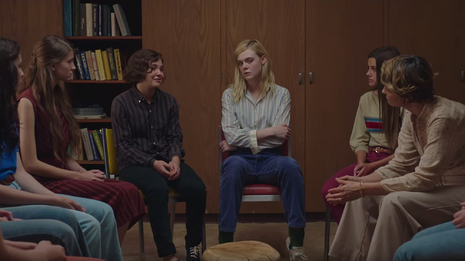Review: Meet some real ‘20th Century Women’
A vivid exploration of coming of age in the late 70s: second wave feminism, punk et al.

In 20th Century Women, Mike Mills’ sunkissed love letter to the 1970s, middle-aged single mother Dorothea Fields is having trouble raising her fifteen-year-old son Jamie. He’s at an age where he wants his own independence – he wants to skate through Santa Barbara or mosh at a punk show in LA without his mum making a fuss – and Dorothea just wishes she could understand him better. To do this, she enlists the help of Abbie, a twenty-something photographer who lodges in the Fields household, as well as Julie, the teenage girl next door who climbs up to Jamie’s room at night, but only to talk, unable to love Jamie the way he loves her.
“While his exploration of the past is lyrical and visually impressive, sometimes it feels as if Mills is just cataloguing his experiences rather than telling us anything real about the characters”
The film that results is a wry character study of all four, as well as another lodger named William, chronicling their joys and disappointments, epiphanies and resolutions as they go through the year 1979. Mills is deeply empathetic, no doubt partly due to the fact that this film is semi-autobiographical; Dorothea is inspired by his mother, Abbie by his sisters, and Julie by the girls he was infatuated with in his teenage years. The film shows these characters’ flaws, but never admonishes them, emphasising that all of them, no matter their age, are going through a process of self-discovery – hurdles are bound to come along the way, but these don’t define them. The cast embody these complicated women brilliantly: Annette Bening’s Dorothea is infinitely warm yet quietly vulnerable, while Greta Gerwig and Elle Fanning perfectly capture the delights and disillusionments of their Abbie and Julie.
The film is also deeply nostalgic, steeped in Mills’ memories of punk, second-wave feminism, and everything in between. Weaved throughout the film are photo montages of unruly concertgoers and awkward teenage lovers, all searching for themselves in post-hippie, pre-Reagan America. Mills portrays this period as having a sort of prelapsarian innocence; Dorothea laments, by voiceover, that “they don’t know that this is the end of punk”, and Mills is keen to espouse the ideals of characters like Abbie, who dances joyously unselfconscious in underground clubs and lends Jamie feminist essay anthologies, over the commercialism and paranoia of the ensuing decades.
“The film shows these characters’ flaws, but never admonishes them, emphasising that all of them, no matter their age, are going through a process of self-discovery”
Mills does, however, get a little too wrapped up in his own nostalgia at times. While his exploration of the past is lyrical and visually impressive, sometimes it feels as if Mills is just cataloguing his experiences rather than telling us anything real about the characters, stringing together scenes that act as a great time capsule for the period but not much else. Mills said himself in an interview that he “trusts moments more than plot”, and though that style might work for some, I left the film feeling like I could say a lot about individual scenes, but little about the piece as a whole.
20th Century Women lacks some substance but is still an enjoyable film that looks back with humour and warmth. Mills delivers plenty of witty, sardonic one-liners and quietly profound insight to justify his occasionally fawning obsession with the past
 News / Uni Scout and Guide Club affirms trans inclusion 12 December 2025
News / Uni Scout and Guide Club affirms trans inclusion 12 December 2025 News / Cambridge study finds students learn better with notes than AI13 December 2025
News / Cambridge study finds students learn better with notes than AI13 December 2025 News / Cambridge Vet School gets lifeline year to stay accredited28 November 2025
News / Cambridge Vet School gets lifeline year to stay accredited28 November 2025 Science / Did your ex trip on King’s Parade? The science behind the ‘ick’12 December 2025
Science / Did your ex trip on King’s Parade? The science behind the ‘ick’12 December 2025 News / Pembroke to convert listed office building into accom9 December 2025
News / Pembroke to convert listed office building into accom9 December 2025








